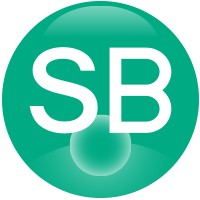E-Selectin / FITC / 103
Product Details
| Description | This antibody was obtained from a rabbit immunized with purified, recombinant Human E-Selectin / CD62e (rh E-Selectin / CD62e; Catalog#10335-H08H; NP_000441.2; Met 1-Pro 556) and conjugated with FITC under optimum conditions, the unreacted FITC was removed. | |
|---|---|---|
| Conjugate | FITC | |
| Clone | 103 | |
| Target Species | Human | |
| Applications | FC | |
| Supplier | Sino Biological | |
| Catalog # | Sign in to view product details, citations, and spectra | |
| Size | ||
| Price | ||
| Antigen | ||
| Host | ||
| Isotype |
About E-Selectin
The protein encoded by this gene is found in cytokine-stimulated endothelial cells and is thought to be responsible for the accumulation of blood leukocytes at sites of inflammation by mediating the adhesion of cells to the vascular lining. It exhibits structural features such as the presence of lectin- and EGF-like domains followed by short consensus repeat (SCR) domains that contain 6 conserved cysteine residues. These proteins are part of the selectin family of cell adhesion molecules. Adhesion molecules participate in the interaction between leukocytes and the endothelium and appear to be involved in the pathogenesis of atherosclerosis. [provided by RefSeq, Jul 2008]
The protein encoded by this gene is found in cytokine-stimulated endothelial cells and is thought to be responsible for the accumulation of blood leukocytes at sites of inflammation by mediating the adhesion of cells to the vascular lining. It exhibits structural features such as the presence of lectin- and EGF-like domains followed by short consensus repeat (SCR) domains that contain 6 conserved cysteine residues. These proteins are part of the selectin family of cell adhesion molecules. Adhesion molecules participate in the interaction between leukocytes and the endothelium and appear to be involved in the pathogenesis of atherosclerosis. [provided by RefSeq, Jul 2008]
About FITC
Fluorescein isothiocyanate (FITC) has an excitation peak at 495 nm and an emission peak at 519 nm. The name FITC is a misnomer in that the isothiocyanate is a reactive form of this dye. Once FITC is conjugated to an antibody, it is simply Fluorescein conjugated. FITC is one of the most widely used dyes for fluorescent applications, therefore most instruments come standard with a 488 nm laser and FITC filter set up. FITC is commonly conjugated to secondary antibodies and used in applications such as flow cytometry, immunocytochemistry, and immunohistochemistry. FITC is relatively dim, sensitive to photobleaching and it is susceptible to changes is pH. There are better performing alternatives to FITC, like Vio®Bright 515, Alexa Fluor™ 488, iFluor® 488, CF®488A and DY-488. FITC is a long-time generic dye with no sole manufacturer or trademark.
Fluorescein isothiocyanate (FITC) has an excitation peak at 495 nm and an emission peak at 519 nm. The name FITC is a misnomer in that the isothiocyanate is a reactive form of this dye. Once FITC is conjugated to an antibody, it is simply Fluorescein conjugated. FITC is one of the most widely used dyes for fluorescent applications, therefore most instruments come standard with a 488 nm laser and FITC filter set up. FITC is commonly conjugated to secondary antibodies and used in applications such as flow cytometry, immunocytochemistry, and immunohistochemistry. FITC is relatively dim, sensitive to photobleaching and it is susceptible to changes is pH. There are better performing alternatives to FITC, like Vio®Bright 515, Alexa Fluor™ 488, iFluor® 488, CF®488A and DY-488. FITC is a long-time generic dye with no sole manufacturer or trademark.
Experiment Design Tools
Panel Builders
Looking to design a Microscopy or Flow Cytometry experiment?
Validation References
Reviews & Ratings
| Reviews |
|---|
Looking for more options?
844 E-Selectin antibodies from over 30 suppliers available with over 63 conjugates.





